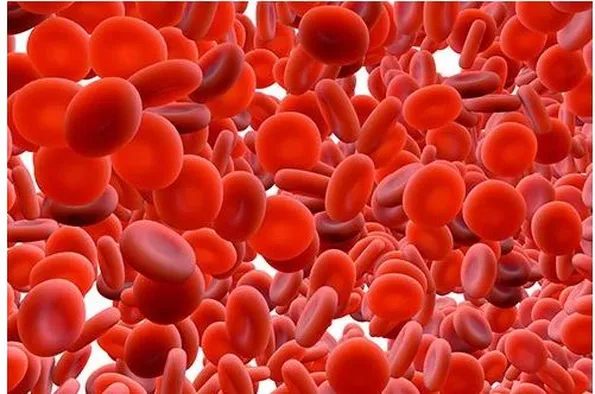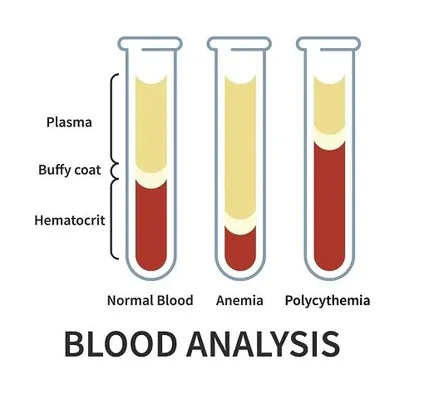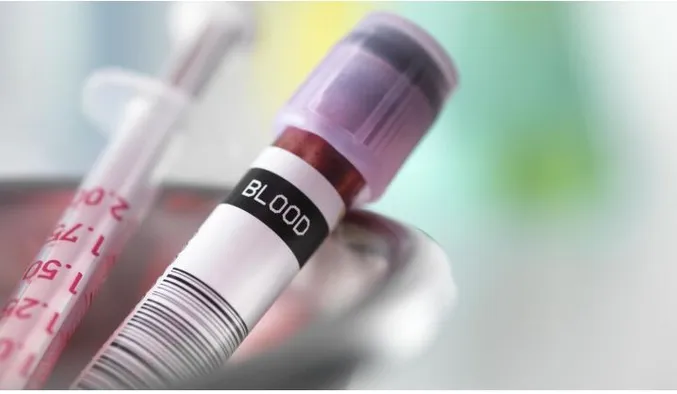A red blood cell count test measures how many red blood cells (RBCs) your blood contains. The red blood cells, or erythrocytes, have hemoglobin — a protein that transports oxygen to all parts of your body.
The amount of oxygen transported to your body parts depends on your red blood cell count.
Other names for the red blood cell count test are RBC count and erythrocyte count. The test is done as a part of a complete blood count (CBC) to identify several health conditions.

What is a high red blood cell count?
Red blood cells are one of the major components of blood, along with white blood cells and platelets. Red blood cells help carry oxygen throughout the body.
Doctors measure your red blood cell count to help diagnose medical conditions and learn more about your health. A high red blood cell count means the number of red blood cells in your bloodstream is higher than normal. Normal red blood cell counts are:
For men, 4.7 to 6.1 million red blood cells per microliter of blood
For women, 4.2 to 5.4 million red blood cells per microliter of blood
For children, 4.0 to 5.5 million red blood cells per microliter of blood
Doctors typically find a high red blood cell count during tests for another health issue. You may need more tests to determine what’s causing the higher levels. These may include tests to look for conditions that cause your body to produce too many red blood cells, such as heart failure, or disorders that restrict your oxygen supply, such as sleep apnea.
What causes a high red blood cell count?
A high red blood cell count may be a symptom of a disease or disorder, although it doesn’t always indicate a health problem. Health or lifestyle factors can cause a high red blood cell count.
Medical conditions that can cause an increase in red blood cells include:
- Heart failure, causing low blood oxygen levels
- Congenital heart disease
- Polycythemia vera
- Kidney tumors
- Lung diseases, such as emphysema, COPD, and pulmonary fibrosis
- Hypoxia
- Carbon monoxide exposure
Lifestyle factors that can cause a high red blood cell count include:
- Smoking cigarettes
- Living at a high altitude
- Taking performance-enhancing drugs such as anabolic steroids

What Factors Can Affect My Red Blood Cell Count Test Results?
Several factors can affect your RBC count, including:
- Dehydration, less intake of water
- Overhydration, high intake of water
- Stress
- Altitude
- Pregnancy
- Certain medications
- Your position during the test
Are There Any Risks to the Red Blood Cell Count Test?
The red blood cell count test is done with a needle, so it has some risks. These can be bleeding, bruising, infections, and dizziness. The pain of needle pricking is usually mild, but the area can become sore afterward. There are no severe risks in RBC testing.
What Will My Red Blood Cell Count Test Results Show?
Several factors may affect your test results. They include your age, health history, gender, and the method used for the test.
Your test results show the number of red blood cells in your blood. Test results don’t always mean that you have a health issue.

How is a high red blood cell count treated?
If a medical condition is causing a high red blood cell count, your doctor may recommend a procedure or medication to lower it.
In a procedure called a phlebotomy, a health professional inserts a needle into your vein and drains blood through a tube into a bag or container. You might need to have this procedure on a repeated basis until your red blood cell level is close to normal.
If you are diagnosed with the bone marrow disease polycythemia vera, your doctor may also prescribe a medicine called hydroxyurea to slow your body’s production of red blood cells. You’ll need to see your doctor regularly while taking hydroxyurea to be sure your red blood cell level does not drop too low.

